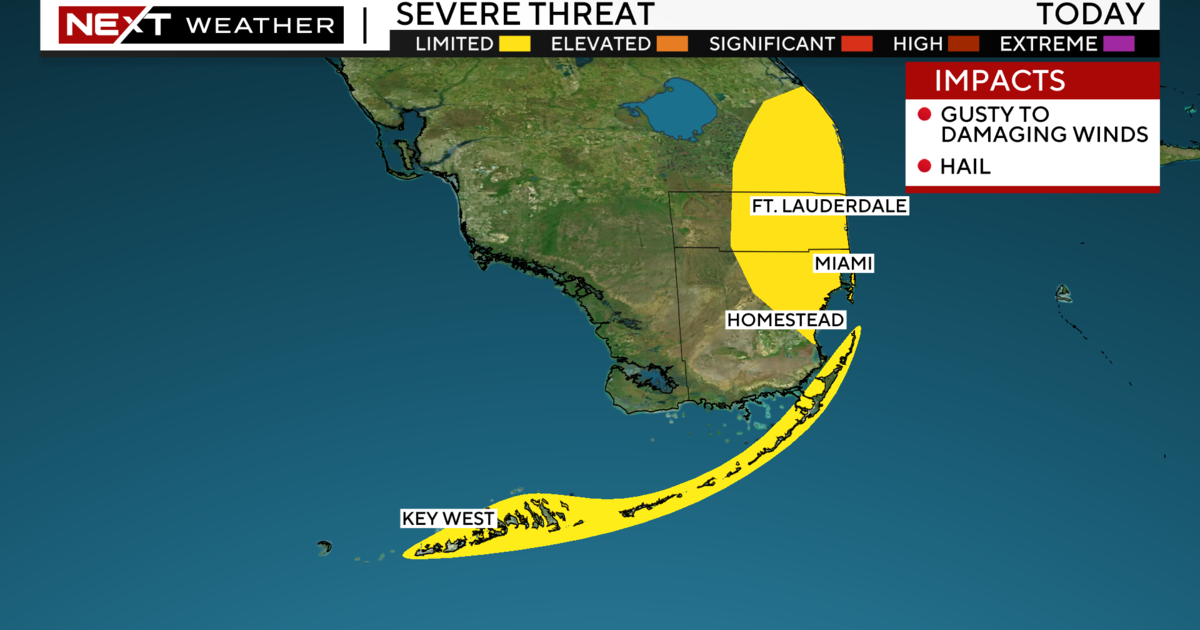Environmental Groups To Sue FPL Over Reported Turkey Point Leak
Follow CBSMIAMI.COM: Facebook | Twitter
MIAMI (CBSMiami) -- On the heels of a Miami-Dade County report that found Florida Power and Light's Turkey Point Nuclear power plant has been leaking dangerous wastewater into Biscayne Bay and the Biscayne aquifer, environmental activist groups announced Tuesday plans to file a federal lawsuit against FPL.
The Southern Alliance for Clean Energy (SACE) and the Tropical Audubon Society issued a 60-day notice of a pending federal lawsuit against the Juno Beach-based power giant. The notice calls on state and federal regulators to take action against FPL under the Clean Water Act because of discharges going into ground water. If regulators do not take action within the 60-day notice period, the groups will sue for civil penalties and ask for an injunction against continued violations.
They cite radioactive elements and other water pollutions discharged into Biscayne Bay from the Turkey Point Cooling Canal System. Additionally, the complaint cites reports that a salt water "plume" is rapidly expanding westward into the underground water supply, as FPL sucks more and more water out of the ground and the everglades to maintain 168 miles of cooling canals that are used to prevent its atomic reactors from overheating.
"We are stepping in because of the shredding of the regulatory safety net that should be in place," said Stephen Smith of SACE.
In studies conducted by both the University of Miami and Miami-Dade County Department of Environmental Resource Management (DERM), monitors found more than 200 times the normal levels of tritium in the bay. That's a radioactive isotope linked to nuclear power production. The Biscayne Aquifer is the sole-source aquifer that provides drinking water to more than 3 million people, and the neighboring Biscayne National Park.
The discovery of the radioactive compound in the bay is the "smoking gun," activists say, which proves Turkey Point's cooling canals are a threat to the water supply and marine life in Biscayne National Park.
"Unless we shut the canals down and look for new technologies that make better use of water, that don't pollute the aquifer, we will never have protection for the national park or the drinking water," said SACE consultant Laura Reynolds, former executive director of the Audubon Society.
The reports do not address any possible risks to the public or marine life but tritium is usually monitored as a "tracer" for nuclear power plant spills or leaks.
The water-intensive Turkey Point Nuclear Generating Station, near Homestead, is one of Florida's biggest daily water users, and returns approximately 600,000 pounds of salt and other contaminants directly into the Biscayne Aquifer on a daily basis.
Florida Power and Light officials have said the reported leak is not affecting the quality of the drinking water.
FPL's Peter Robbins told CBS4 News that the company runs a clean, safe operation at Turkey Point that does not put the public at risk. Robbins said the plant has not polluted the drinking water supply and levels of radioactive isotopes found in Biscayne Bay are well below what federal guidelines allow for drinking water.
Robbins said FPL is mindful of issues raised in recent studies and is working with local, state and federal agencies to address them.



